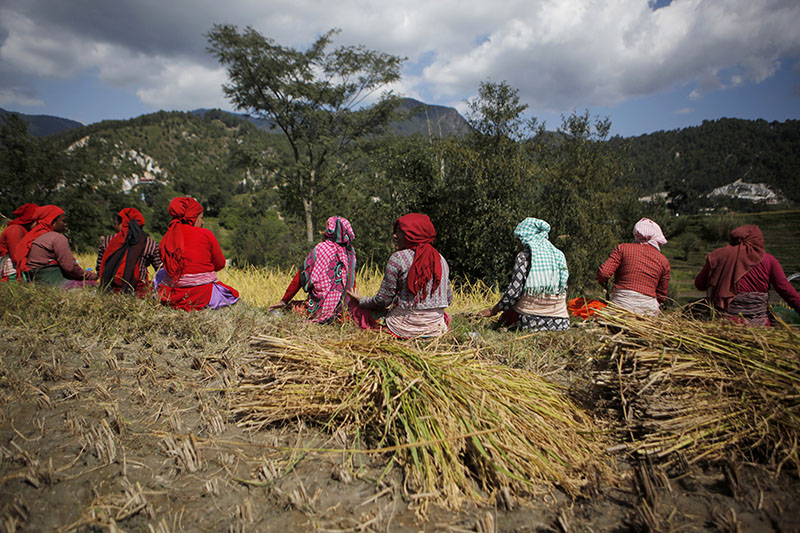India’s budget could adversely affect Nepal’s agro sector
Kathmandu, February 1
The government of India today presented the union budget 2018-19 in the Parliament, which announced massive subsidy for agriculture and irrigation and vowed to double the income of farmers by 2022.
The last budget of the Narendra Modi-led government has given due priority to agriculture and rural economy through subsidies and tax incentives.
However, the Indian government’s policy could adversely affect Nepal’s agriculture production base as imports from India could be cheaper, according to Nara Bahadur Thapa, executive director of Nepal Rastra Bank.
Nepal government has been imposing five per cent other duties and charges (ODC) in the name of Agriculture Reform Tax on agriculture products being imported from India to protect Nepali agro producers.
When Nepal became a member of the World Trade Organisation (WTO) in 2004, it had made commitment to eliminate such ODCs in 10 years. Hence, since 2014, the government of India has been raising the issue of eliminating ODCs during the intergovernmental committee meeting (IGC), which is also known as commerce secretary-level talks.
The next meeting of the IGC — a bilateral mechanism to hold dialogue on commercial issues every year in alternate country — is going to be held in Nepal after formation of new government.
Nepal has sought an extension to eliminate ODC citing the adverse impact of earthquakes on the economy. “If we eliminate the ODC, agriculture imports from India will be five per cent cheaper than at present and the massive subsidy and tax incentives for agriculture in India could hit Nepal’s agriculture sector hard if we do not take some measures to make our agriculture sector competitive,” a renowned economist explained.
Meanwhile, the Indian government’s policy to tax the emerging sectors could encourage Nepal also to move towards tax reforms. The union budget of India has announced 10 per cent long-term capital gains tax. This means the government will levy 10 per cent capital gains tax on a person or firm making a huge profit within an interval of two, three or five years from nominal investment. “The practice adopted by India to tax emerging sectors is a good one,” said Thapa of NRB, adding, “This will also be an issue of debate in tax reforms in Nepal.”
Citing an example, he said people are making huge profit from land transactions based on political decisions to name some of the cities as the capital of provinces. “But the government is mum about taxing them and the people who have benefited are reluctant to pay tax while selling their property in provincial capitals,” Thapa said. “Because they have gained due to a political decision, the state should also benefit.”
On the other hand, the union budget of India has announced massive reforms in foreign direct investment (FDI) regime, which will increase India’s preference among foreign investors. If the FDI starts getting concentrated in India, Nepal could miss the opportunity to bring in FDI and reap advantage of the Indian market by producing cheaper goods in Nepal, according to Thapa.






